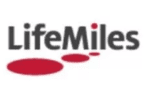Below is a guest post from my friend Dawnzerly from ShareTraveler.com, a website dedicated to saving money on travel using home exchange and other sharing economy networks.
The perennial question for travelers: do I need travel insurance? My answer is maybe, it’s complicated. Let’s first briefly discuss general travel insurance, and then we’ll get to our primary focus which is medical and healthcare coverage.
Contents
General Travel Insurance
First let’s talk just a bit about general travel insurance. This covers trip cancellation, lost luggage, delays, and other issues that impact your enjoyment of the trip. For the most part I think buying general travel insurance is a waste of money. A trip cancellation won’t bankrupt anyone. If you could afford the trip, even with a full cancellation all you lose is the enjoyment part. And insurance is a profitable industry. That means that most people pay more than they get back.
But to argue the other side of this: My aunt and uncle bought a super expensive kayak tour through a travel company a few years back. The company went bankrupt and cancelled the trip. They didn’t have insurance and were out about $10k. For these expensive trips it might be a good gamble to protect your purchase with insurance.
If you pay with the right credit card, you will already have some insurance built in. Some good options include the Chase Sapphire Reserve and Sapphire Preferred cards, and the American Express Platinum card. Research what is covered by your credit cards and take advantage of these protections.
Medical Travel Insurance
Medical insurance is arguably much more important than general trip insurance. If you get seriously ill or injured while traveling, medical insurance could be critical to both your financial and medical wellbeing.
Who needs travel medical insurance?
Some primary health insurance plans cover you anywhere in the world. But don’t assume you have this coverage. If you purchase a health plan through your state or the federal government, you are not covered for care outside of the United States. This includes ACA plans (aka Obamacare), the VA, Medicaid, and Medicare. Many private employer-sponsored plans also don’t cover care outside of the U.S.
You also need to consider medivac services. This is not necessarily included with health insurance that does cover foreign travel. If you’re visiting somewhere with poor healthcare infrastructure, having the option of medivac to a better hospital may be important.
I’m writing this from the perspective of an American, living in a country where healthcare is ridiculously expensive. There are many countries where the cost of care is quite reasonable. And even a short hospital stay won’t be a huge financial burden. The care in some of these places is as good or better than what you would receive in the U.S. Medical tourism was a $45 billion market in 2019. So perhaps if you’re taking a trip to Thailand you don’t need medical insurance. As long as you’re ok staying in Thailand until you recover sufficiently to fly home, you will likely get good care at a reasonable price.
When should you buy travel medical insurance? The two most likely scenarios:
- You’re traveling to a country where you are not comfortable with the level or availability of medical care.
- You’ll be in a country where costs of care are prohibitive.
The book The Perfect Predator gives a scary, if rare, story to consider. It’s written by an epidemiologist whose husband developed an antibiotic resistant infection while traveling in Egypt. He needed a lot of medical care in Egypt and a medivac flight out of the country. Fortunately they had travel medical insurance. Is this likely to happen to you? No. But you have to weigh the risks, costs and benefits. The risk of something like this happening is very low but the potential cost is very high.
Credit card insurance options
A few credit cards offer evacuation insurance. And only a tiny subset of those offer medical insurance.
There are only two cards that cover medical and evacuation coverage:
Chase Sapphire Reserve and Chase Ritz Carlton credit cards cover:
- Emergency evacuation insurance ($100k coverage limit)
- Emergency medical & dental insurance ($2500 coverage limit)
The medical insurance provided by Chase covers emergency treatment for illness or injury, and up to $75 per day (up to 5 days) for a hotel if your physician determines that you can’t travel immediately.
A number of other cards offer emergency evacuation services but no emergency medical coverage:
- All premium Amex cards (high annual fee cards) including personal and business Platinum cards, Centurion cards, Hilton Aspire, Marriott Bonvoy Brilliant and the Delta Reserve Skymiles cards:
- Emergency medical transportation is via the Premium Global Assist service. The hotline medical department determines if it is medically necessary and advisable due to inadequate local facilities. You must be traveling more than 100 miles from home on a trip of 90 days or less.
- Bank of America Premium Rewards card
- Emergency evacuation and transportation: Covers eligible medical services and transportation if you or a member of your immediate family are injured or become sick during a trip far from home that results in an emergency evacuation.
- US Bank Altitude Reserve
- Emergency evacuation: Up to $10,000 for necessary emergency evacuation and transportation when on a trip of five to 60 days and traveling more than 100 miles from home (100-mile requirement waived for New York residents)
With all of these cards, be sure to carefully review the guide to benefits to ensure your trips meet the requirements for coverage. Limitations to look out for:
- What part of the trip must be paid for with the credit card
- Are there any country-specific exclusions
- Are there pre-existing condition exclusions
- Are there exclusions based on type of trip (i.e dangerous expedition)
Also note that many evacuation services only cover you to the closest hospital that can treat your injury/illness, as determined by the benefits administrator. It won’t necessarily get you home. Or even to the hospital of your choice nearby. The best evacuation insurance lets you pick your destination hospital, and will cover your transportation home post-hopsitalization. For this sort of comprehensive insurance look at companies like Medjet.
Purchased travel medical insurance options
As an alternative to credit card insurance, you can buy travel medical insurance on either a per trip or annual basis. There are a lot of companies out there offering variations on this insurance. And many of them now cover Covid-19, or at least have options for this coverage. If you travel a lot, consider buying an annual travel medical plan, it will be cheaper than insuring each trip individually.
Most of these insurance plans cover some local medical care as well as emergency transportation. Though, as with credit card evacuation insurance, take note of limitations of this transportation.
I found that I could buy an annual plan through Allianz for $60. It covers all trips in the year as long as they are less than 45 days long. Coverage limits are per trip and include:
- $20k emergency medical (covers $750 dental)
- $100k emergency transportation
This is a pretty bare bones plan, you can get much more comprehensive coverage with carriers like Seven Corners where I can buy annual insurance for $283.94 with a $250 deductible. This one covers hazardous sports, for up to 45 days travel.
Also look in some less likely places. Like Garmin. The device company offers a Garmin inReach medivac insurance plan that covers you when you are more than 99 miles from home: “You will be transported in a medically equipped and staffed aircraft from an incident location anywhere in the world to the nearest medical facility, and then to a hospital near your home.” The coverage is for up to $1 million in expenses. The annual cost for this very comprehensive coverage is $199.95.
Final Thoughts
Insurance is one of the less fun parts of planning travel. And it really does require planning. Well in advance. Take some time now to think about your strategy. Understand the benefits from your credit cards, and determine if that coverage is sufficient. Research per-trip insurance costs, and consider whether an annual travel medical insurance plan is a good idea for you.
This article came out of research I was doing for myself. In the past I relied on credit card insurance. And I’ve been fortunate and never had to make a claim. But when my travels resume, post-pandemic, I will purchase an annual medical insurance plan. I travel enough that this will be cheaper than buying insurance on a per-trip basis. And I want the coverage even though the risk is small. The cost of gambling and losing is too high for my taste.
Related Posts:
- Credit Card Price Protection Policies Compared: Chase, Citi, Discover, Barclaycard, U.S. Bank & MasterCard
- Credit Card Benefits: Purchase Protection Review for Theft, Damage, or Loss
- Credit Card Cell Phone Insurance Compared – Get $600 In Coverage For Free
- Credit Card Benefits: Extended Warranty Review
- Credit Card Benefits: Return Protection Review
- Handy Roadside Assistance Cards For Premium Credit Cardholders
- [Future Post] Credit Card Benefits: Car Rental Insurance Review







Thanks for bringing up some great concerns and ways to address them. The Allianz quote that you use above is wonderful but is it primary coverage? The Allianz policies I’ve looked into all were secondary coverage, which in practical terms means that any insurance companies try to strenuously avoid paying the medical bills by foisting responsibility on each other. Meanwhile, the customer is waiting for reimbursement for a sizeable chunk of change.
Just flew to Thailand and currently in ASQ quarantine. To enter the Kingdom, a requirement of $100,000 primary medical insurance coverage (including Covid) must be actually shown (physical copy) to get certificate of entry (CoE) from the Thai Consulate. I bought mine from AXA online in the US – total $260 for 2 months policy that began the day I landed here.
I have the expensive AMEX Hilton card and it does provide Premium Global Assist Hotline. But that’s it, a hotline with someone on the phone to talk to and not a tangible health insurance policy with an actual primary coverage.
Helps to be on good terms with God/our Creators.
But God/Creator(s), is/are not who you think it is nor does God think as you might.
🙂
My ACA policy bought through healthcare.gov from Blue Cross Blue Shield of NC actually had a decent international network of coverage. We spent 2 months in SE Asia in 2019 and I checked their network for every city we were in. They had at least 1 doc in each city (HCM, Phnom Penh, Siem Reap, Cambodia, Chiang Mai, Chiang Rai, Bangkok Thailand), and sometimes several. They also cover emergencies regardless of where you are but you might have to pay out of pocket first (many countries, private hospitals are cash up front for treatment). The policy also covered medical transport if transportation was required for medical purposes (such as the local hospitals sucked and they needed to transport you to a regional hospital that offered competent care).
I felt that coverage was good enough and didn’t opt for anything extra. I’m also okay absorbing the tiny risk that I’d have to pay 20-30 thousand out of pocket to cover care in a particular situation. Or 50-100k for medevac home (though we’d be more likely to just stick around till whoever got hurt recovered and fly commercial).
To add to this, even my Bronze-level HDHP plan with PacificSource in Montana bought through healthcare.gov had international emergency coverage on a pay-first-reimburse-later basis. Never had an emergency overseas that I had to make a claim on, thankfully.
I just purchased a medical policy through Trawick International Safe Travels Voyager (Nationwide underwriter) for a trip next month. $50 total premium for myself and SO …Emergency Evacuation $1,000,000; Emergency Accident and Sickness Medical Expense $250,000 per person; Trip Delay (for expenses including needing to quarantine due to COVID); and the other standards like Baggage delays and loss, and COVID is fully covered. Never purchased this before but think during these times the peace of mind is worth it.
Thailand has better care than the U.S in my opinion at 1/20th of the cost.
ref: me U.S expat who lived in Thailand for 5 years
Great post!
My parents are traveling to US from Canada. Do you have any suggestion on which medical insurance I should consider getting? They are doing quite well except occasional high bp and sugar. TIA.
Care might be cheaper in Thailand, but as a healthcare worker, there is no way in hell I’m going to trust their level of care when I can’t trust the level of care at many US hospitals. We often get rotators at work from other countries and they’re mind-blown by things that are standard of care here and they’ve only read about in textbooks. I’ve done more than one explant of those cheap Mexico lap band weight loss surgeries.
Thailand has better care than the U.S in my opinion at 1/20th of the cost.
ref: me U.S expat who lived in Thailand for 5 years
What about American Express Platinum’s Premium Global Assist?
“Emergency Medical Transportation Assistance
In the event the Card Member or another Covered Family Member becomes injured or ill while traveling and is seeking medical treatment as a result, the Premium Global Assist Hotline medical department can assess the adequacy of local facilities and the medical need for emergency medical transportation/evacuation. Such emergency medical transportation/evacuation may be provided at no cost if the Premium Global Assist Hotline medical department, after review of the medical information and in consultation with the local medical service provider or facility, determines there is a medical need at the time of the incident for such transport and such transport is advisable due to the inadequacy of local facilities.”
https://www.americanexpress.com/content/dam/amex/us/credit-cards/features-benefits/policies/pdf/PGA_Benefit_Guide_Rev_09-17.pdf
Looks like that the Premium Amex card benefit discussed in the post
A low cost annual policy for int’l travel might make sense for me. I’m typically out of the country for 2 or 3 months a year in different countries, and having no foreign medical coverage would seem unwise (especially as I get older). The author mentions Allianz. Any experiences with this, or recommended alternatives?
One other thing is that most policies don’t cover bankruptcies for anything other than an airline, cruise, or tour operator. If the hotel/resort goes under, you’re basically screwed.
Also COVID items are tricky as well. Let’s say you’re on a cruise or somewhere and you are quarantined for 2 weeks even though you don’t have COVID. You’re on your own. Most insurance won’t cover the additional expenses unless YOU have COVID AND a doctor deems it medically necessary. Vast majority of insurances don’t cover “government regulations” that may require these quarantines (notably TravelEx/Berkshire Hathaway policies have an exclusion for “government regulations”.